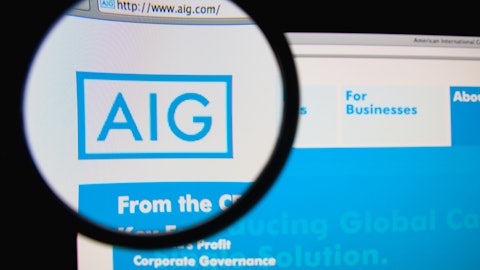Looking for high-potential stocks in the seemingly overvalued equity markets? Follow activist investors’ targets and campaigns! A recent study has concluded that companies targeted by activist investors tend to outperform the broader market benchmarks, but also tend to perform significantly stronger as a business. However, this investment strategy does not instantly generate the desirable results and profits, so it is rather suitable for long-term oriented investors. The 13D Activist Fund, a mutual fund that tracks the moves of activist investors founded by its Chief Investment Strategist Ken Squire, has outperformed the broader market each year since 2012. That being said, the following article will analyze and discuss three 13D filings submitted by several well-known and successful activist hedge funds tracked by Insider Monkey.
Following activist funds is important because it is a very specific and focused strategy in which the investor doesn’t have to wait for catalysts to realize gains in the holding. An activist fund can simply create its own catalysts by pushing for them through negotiations with the company’s management and directors. In recent years, the average returns of activists’ hedge funds has been much higher than the returns of an average hedge fund. Furthermore, we believe do-it-yourself investors have an advantage over activist hedge fund investors because they don’t have to pay 2% of their assets and 20% of their gains every year to compensate hedge fund managers. We have found through extensive research that the top small-cap picks of hedge funds are also capable of generating high returns and built a system around this premise. In the 37 months since our small-cap strategy was launched it has returned 102% and beaten the S&P 500 ETF (SPY) by more than 53 percentage points (read more details).
Follow Paul Singer's Elliott Management
According to a Schedule 13D filed with the SEC, Paul Singer’s Elliott Management and its affiliates collectively own 67.06 million shares of Alcoa Inc. (NYSE:AA), which account for 5.1% of the company’s outstanding common stock. The freshly-disclosed stake includes 19.65 million shares of common stock underlying exercisable options and 36.65 million shares underlying physically settled swaps. Elliott Management has additional economic exposure comparable to roughly 1.3% of the company’s shares. The activist hedge fund firm owned call options underlying a mere 2.0 million shares on September 30. The aforementioned public filing also outlined Elliott Management’s belief that the shares of the aluminum producer “are dramatically undervalued by the public market”, but also applauded the company’s spin-off transaction. On September 28, Alcoa Inc. (NYSE:AA) announced its intentions to separate into two independent, publicly-traded companies: one company will focus on upstream aluminum production and midstream production, while the other one will focus on “value-added” operations. Meanwhile, shares of Alcoa gained 4.37% on Monday and have advanced by an additional 0.44% in today’s pre-market trading session.
The hedge fund sentiment towards Alcoa’s stock did not change significantly during the third quarter, as the number of hedge funds invested in the aluminum producer increased to 46 from 45 quarter-over-quarter. These hedge fund investors had accumulated 12.60% of the company’s shares as of September 30, while the value of their investments climbed to $1.59 billion from $1.12 billion during the three-month period. Seth Klarman’s Baupost Group added a 52.27 million-share position in Alcoa Inc. (NYSE:AA) to its portfolio during the September quarter.
Follow Howmet Aerospace Inc. (NYSE:HWM)
Follow Howmet Aerospace Inc. (NYSE:HWM)
Receive real-time insider trading and news alerts
Let’s head to the next page, where we discuss two other activist targets, including Icahn’s latest statement on AIG.



